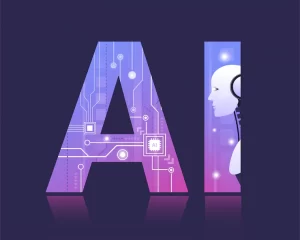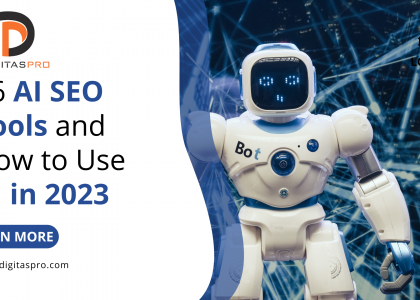


AI (Artificial Intelligence) has revolutionized various aspects of our lives, and content creation is no exception. With the advancement of technology, AI-generated content has become more prevalent, raising important questions about its impact on search engine optimization (SEO) and its compliance with Google’s guidelines. In this article, we will delve into Google Search’s guidance about AI-generated content in English, exploring its implications, benefits, and potential concerns.
AI-generated content refers to the creation of written material using machines and algorithms. Through natural language processing, AI can analyze vast amounts of data and generate text that mimics human writing. This technology has gained significant attention due to its efficiency and potential to streamline content creation processes.

AI-generated content encompasses a wide range of written materials, including blog posts, news articles, product descriptions, and more. It utilizes algorithms capable of understanding context, grammar, and language nuances to formulate coherent and engaging content.

As an industry leader, Google acknowledges the rise of AI-generated content and provides specific guidance to ensure its compatibility with search algorithms. According to Google, AI-generated content must comply with the same quality standards as human-written content. The focus is on user experience, relevance, and informative value.

AI-generated content offers several advantages for businesses and content creators. Firstly, it significantly reduces the time and effort required to produce large volumes of content. AI can generate content faster than humans, allowing companies to publish more frequently and stay ahead of their competitors.
Additionally, AI-generated content can improve the quality and consistency of written materials. Algorithms can analyze patterns in successful content, which enables them to produce engaging and relevant articles. This consistency helps build brand identity and enhances the overall user experience.
While AI-generated content presents numerous benefits, it also comes with challenges and risks. One of the main concerns is maintaining uniqueness and avoiding duplicate content. With AI capable of creating vast amounts of text, there is a risk of repetition, which can negatively impact SEO rankings.
Moreover, AI-generated content may sometimes lack a human touch. Although algorithms can produce grammatically correct articles, they may lack the emotion and personalization that resonates with readers. This can result in lower engagement levels and reduced user satisfaction.

To optimize AI-generated content for search engines, specific strategies can be employed:
Focus on relevant keywords: Ensure the AI algorithm understands the importance of relevant keywords and how they impact SEO.
Incorporate natural language: Program AI to emulate the conversational tone used in human-written content.
Comprehend user intent: AI algorithms should be trained to anticipate and meet the needs of the target audience, providing valuable and informative content.
Avoid keyword stuffing: Similar to human-written content, overusing keywords can be detrimental to the quality and ranking of the content.
Proofread and edit: Despite being AI-generated, it is important to review and edit the content for accuracy and readability.
To ensure compliance with Google’s guidelines for AI-generated content, certain considerations should be taken:
Disclose AI usage: Clearly state that the content is AI-generated, promoting transparency and building trust with users.
Mark content attributes: Use structured data markup to indicate AI-generated content, helping search engines distinguish it from human-written material.
Adhere to webmaster guidelines: AI-generated content should comply with the same guidelines as human-written content, ensuring relevancy, quality, and ethical practices.
To avoid issues of duplication and maintain uniqueness, content creators should implement the following measures:
Use algorithms to detect plagiarism: AI technologies can scan existing content to ensure the produced content is original and unique.
Incorporate diverse data sources: By utilizing various data sources, AI algorithms can generate more comprehensive and distinct content.
Combine human input with AI-generated content: Human editors can review and add personalization to AI-generated content, adding a human touch to maintain engagement.

Google’s search ranking algorithm assesses various factors, including content quality, relevance, and user experience. While AI-generated content can meet these criteria, it may face challenges in achieving the same level of engagement that human-written content often achieves. Therefore, it is essential to strike a balance between utilizing AI technology and incorporating human input to ensure higher search rankings.
Achieving a harmonious balance between AI-generated and human-written content is crucial. AI technology can help produce large volumes of content efficiently, while human writers contribute authenticity, creativity, and personalization. Combining both approaches can result in high-quality content that resonates with readers and adheres to Google’s guidelines.
Despite concerns surrounding user experience and engagement, AI-generated content can still provide valuable information to users. To enhance user experience, content creators should consider the following:
Add a human touch: Incorporate personal stories, experiences, and anecdotes to make the content more relatable and engaging.
Create interactive elements: Include polls, quizzes, or interactive features to boost user engagement and encourage further interaction.
Encourage feedback: Provide opportunities for users to leave comments or ask questions, creating a sense of community and fostering engagement.
As AI technology progresses, ethical considerations arise. Content creators should be aware of the following ethical aspects:
Transparency and disclosure: Clearly indicate if content is AI-generated, avoiding any potential misrepresentation.
Avoiding biased content: Ensure that AI algorithms do not unintentionally promote biased or discriminatory content.
Safeguarding user privacy: Protect user data and personal information, adhering to privacy regulations and guidelines.
AI-generated content continues to evolve at a rapid pace. As the technology matures, content creators and marketers need to adapt and embrace the benefits it offers. AI can help automate routine content creation tasks, allowing human writers to focus on more creative and strategic aspects. The future of AI-generated content holds great potential for innovation and efficiency in the ever-evolving digital landscape.
AI-generated content has emerged as a powerful tool in content creation, offering various benefits and challenges. Google Search’s guidance emphasizes the importance of maintaining quality and relevance, ensuring a positive user experience. By following Google’s guidelines, optimizing content for SEO, and striking a balance between AI-generated and human-written content, businesses can leverage this technology to enhance their content strategy and gain a competitive edge.
While AI-generated content provides efficiency and can be valuable, human-written content is essential for authenticity, creativity, and personalization. A balanced approach combining both is recommended.
Incorporating algorithms that detect plagiarism and utilizing diverse data sources can help ensure uniqueness in AI-generated content.
Ethical considerations include transparency and disclosure, avoiding biased content, and protecting user privacy and data.
While AI-generated content can offer valuable information, human-written content often resonates more with readers. Combining AI technology with a human touch can enhance engagement levels.
The future of AI-generated content is promising, with potential for increased efficiency and innovation. AI can automate routine tasks, allowing humans to focus on more creative aspects of content creation.
